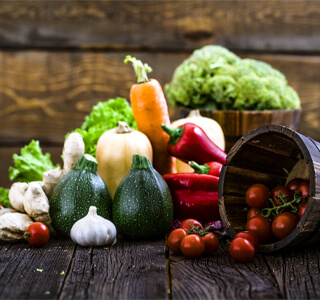Why Eating More Is the Secret to Losing Weight
If you are trying to lose weight, the first thing you may do is cut back on the amount you are eating, especially the foods that taste great but do not do your waistline any favors. While it is common knowledge that if you are trying to shed a few pounds you will want to keep an eye on your diet, but it is possible to take that notion too far.
Did you know that not eating enough can be seriously detrimental to your weight loss? Especially when you have already lost a bit of weight but have run straight into a plateau. Here is the science behind it.
How you are sabotaging yourself
If you are continuously overeating, you may lose weight, but only at first. Soon after, your body begins to panic. When the body believes it is in famine, your metabolism drops and you burn fewer calories. This is an adaptive response to conserve energy.
The phrase “calories in, calories out” simplifies nutrition immensely. Losing weight is often more complicated than creating a calorie deficit, you must be providing your body with enough fuel (calories) in the first place. Your body not only needs to be given enough calories to feel support energy needs and feel safe, but also the right proportions of macronutrients (carbohydrates, fats, protein) and vitamins and minerals.
Food quality makes a difference
Eating more can work in your favor when you are prioritizing high-quality whole foods over refined, processed foods. It is not completely about the physical amount of food you eat, but the type of food as well. For example, meals consisting of protein bars and shakes is not the same as eating a well-balanced diet of fruits, vegetables, lean proteins, and whole grains. While it may seem like you are eating more food in the second situation, you are actually providing your body with more substances to turn into fuel.
Eat complex carbs and high-fiber foods, they take longer to digest than refined and processed foods, meaning your body will use more energy (calories) to break them down.
You are always burning calories
Your body burns calories in several ways. One is through your basal metabolic rate (BMR). Your BMR is how many calories your body burns at rest. Another way you can burn calories is through digesting your food, and the most obvious way the body burns calories is through exercise.
NEAT, or non-exercise activity thermogenesis, is the energy you burn while doing everything that is not breathing, digesting, eating, or any exercise-like activity. Examples include gardening, cleaning, cooking, fidgeting. These calories add up quickly and can help you burn more calories in the long run.
But what exactly does that have to do with eating more? Well, science shows that people who eat more likely move more, and therefore burn more calories. When study participants were provided too few calories, their NEAT scores dropped. Subjects who were overfed calories saw an increase in NEAT. While the exact mechanism behind NEAT is not entirely known, scientists believe it is between a conscious effort to move more because you have more energy and moving in unconscious ways, like fidgeting and gesticulating.
However, some people will see weight gain if they increase their calorie intake and NEAT does not compensate for the increase. If you are eating a very low amount of calories and are feeling lethargic, increase your calories and prioritize movement.
